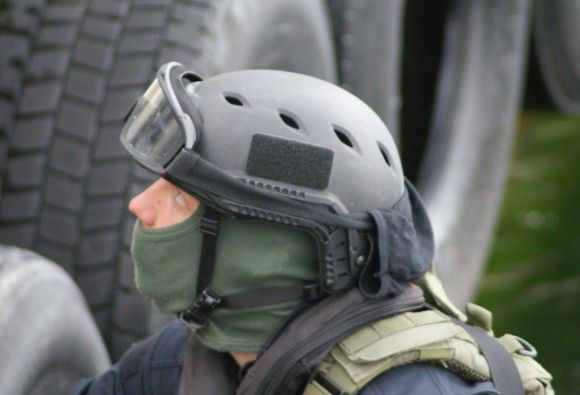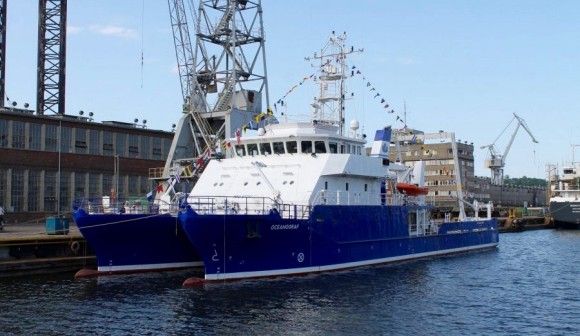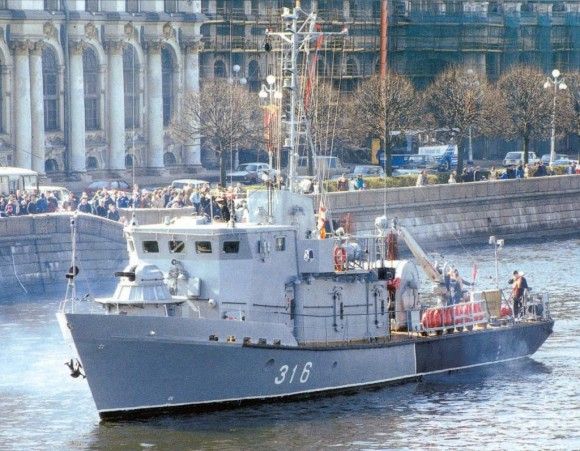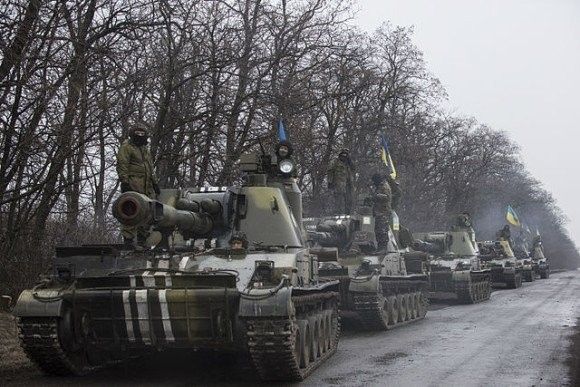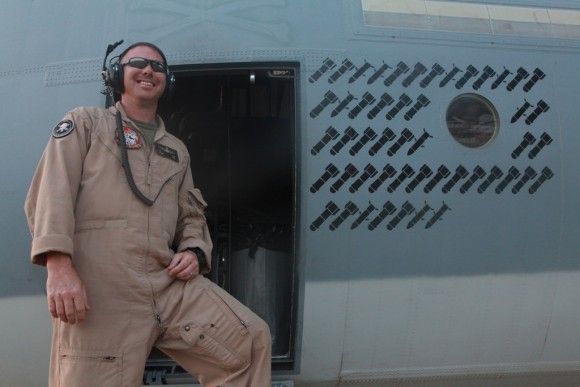Geopolitics
Expert: Trump’s visit brings U.S. – Polish relations to the new level [INTERVIEW]
“[…] the key message is going to be about the U.S. engagement in the region, taking our security relationships to the next level and I think we can expect some important developments here both in the context of NATO, our collective defense commitment to the region which is really important and about the strong U.S. - Polish defiance cooperation”, said Damon Wilson, an executive Vice President of the Atlantic Council.
Lidia Gibadło: During his visit in Poland Donald Trump is going to give an important speech. What will be its bullet points? Can we expect that any new military cooperation projects will be announced then?
Damon Wilson: You're right - the President of the United States will give a very important speech to the people of Poland while he's in Warsaw and I think this is quite significant. It is his first trip to Central Europe and first time to be able to consult directly with the Central European leaders about security in the region on the eve of G-20 summit where he'll obviously have an encounter with president Putin.
So the key message is going to be about the U.S. engagement in the region, taking our security relationships to the next level and I think we can expect some important developments there both in the context of NATO, our collective defence commitment to the region, which is really important, and about the strong U.S. - Polish defence cooperation. Poland is a model ally because of their defence spendings and investments. It has just come out with the new defence concept which opens the door to new announcements on defence procurements and major strategic defence projects which will help the United States enter here.
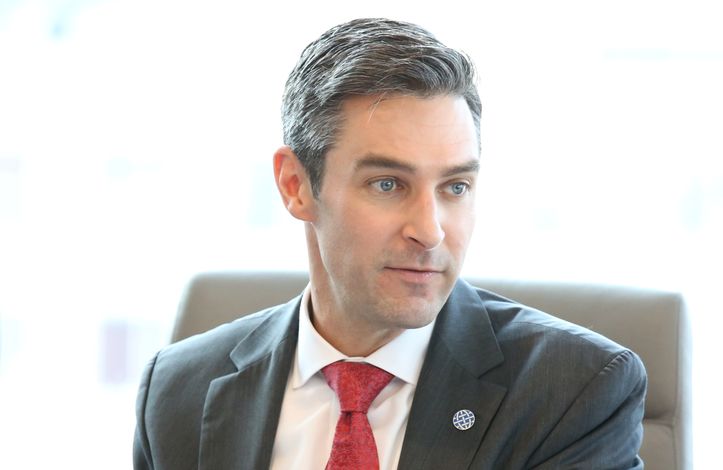
We are also going to see how much the President of the United States gives a nod towards the enduring presence of our forces in Poland because having President recognized that this isn't a temporary deployment but a more sustainable deployment is going to be significant.
I think this trip has a chance to take the alliance to the next level while at the same time being clear that we need to build up the diplomatic-political level engagement as well as the economic and commercial engagement - that's a big thing to play out not just for the defence sector but across all the projects.
Trump didn’t mention article 5 in his Brussels speech but he told a lot about fight against terrorism. Should we consider this a signal of changing the security policy priorities by the new administration as well as voicing American expectations towards NATO? How is the U.S. government going to strengthen their presence on the NATO’s Eastern Flank?
I don't think you can interpret the Brussels speech as a change in the U.S. policy strategy. I think there is obviously quite a bit of drama around the words that were said in Brussels. I will point out that right after Brussels the Atlantic Council hosted vice president Pence at the 70th anniversary of the Marshall Plan with the NATO’s Secretary General and the Prime Minister of Montenegro. Pence gave a full alliance defence commitment followed just a few days later by President Trump himself stating this standing next to president Iohannis
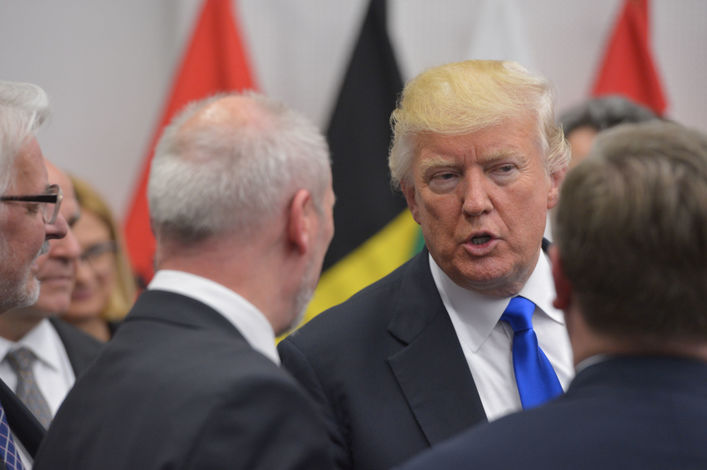
of Romania at the White House. So I think that Poland is an important backdrop in venue because all eyes will be on Poland and this is now the time when President Trump can express the priority of U.S. commitment to our collective defence agreements in the alliance, the importance of this particularly on the Eastern Flank and the presence of the U.S forces there as well as the recognition that they are there because we feel threatened by Russia's posture and Kremlin's policies.
So I think it's all that we want to watch - how he speaks clearly to Polish concerns that are ours too. And I think you're likely to see some messaging on that, that makes it clear. No doubt that President puts big expectations on our allies stepping-up on their defence commitment but I think you're going to see a formation of some of the important principles of our alliance strategy in the east. And that's why I think the trip to Poland is so important as it creates a natural venue for the President to say these things and it's almost unnatural to be there and not say them.
Do you think that the U.S. defence industry will be more active on the Central and Eastern European markets as a consequence of the American military presence in the region?
The answer is definitely yes. It is a consequence of America deepening their engagement militarily there. But it's also a consequence of the fact that the greatest growth rates in defence investments are in Central and Eastern Europe driven by Poland with Romania and the Baltic states backing that up. We're seeing that these countries in the East achieve NATO standards more rapidly and with political will to get their budgets to that spot. Poland is the most significant market in that space.
We just hosted the undersecretary Tomasz Szatkowski here at the Atlantic Council for briefing on the Polish new defence concept and it’s obvious that now there's a clear strategy in Poland that's focused on NATO and on the U.S. partnership. That very clearly translates into procurements priorities - long ranged artillery, tanks, submarines as well as air defence. I think that opens up many opportunities. That is why you see the American defense contractors’ presence in Poland ranging from Raytheon to Lockheed Martin and many other actors. This is where they will be looking.
Recently media have informed about the plans to strengthen sanctions imposed on Russia. Can this information together with Trump’s visit to Poland be interpreted as a message to Moscow before Trump’s meeting with Vladimir Putin during G-20 summit in Hamburg? Do you think that prolonging sanctions is a possible case scenario?
Yes, these are related because what they do essentially is to tie-up the United States and the President in particular to engage in any conversation with Vladimir Putin from the position of strength, to be able to come from allies in Central and Eastern Europe that are investing more in defence. I think President Trump's visit to Poland will put to rest questions of the U.S. commitment to alliance. It won't put to rest his pressure in cajoling our allies to increase the defence spendings but I think it will help to align the sense of the U.S. commitment, of our forces posture in the East and you back that up with a very strong effort in congress to expand the sanctions.
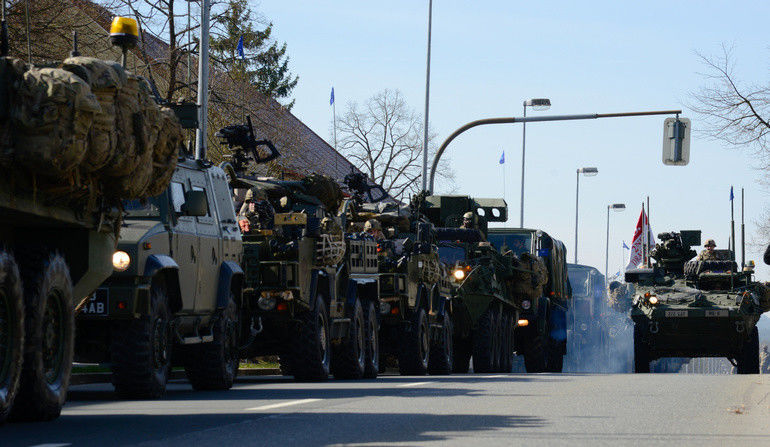
Now there are some issues that worry our European friends and the administration about prerogatives but the political point is clear that there's a deep bench of support on both sides of the aisle - democrats and republicans standing up firm to Russian revisionism, to Russian dangerous behavior whether it is our own budget and supporting a more permanent American military presence in Central and Eastern Europe or further straining the sanctions regime. So this put the United States in a position of strength. Those decisions are clear messages to Vladimir Putin that his actions in Ukraine, his intimidation of our allies, the overflights and harassment of our ships in the Baltics are actually not acceptable and they won't go unnoticed.
Can we expect that in Warsaw Trump will touch upon NATO enlargement?
Of course NATO has just enlarged and President Trump has welcomed Montenegro as the newest ally, but I wouldn’t say that this will be on top of the agenda.
I think the issue for us is while we do have a near term possibility as we progress in Macedonia so NATO enlargement is very much on the radar screen. I think that the big issue in Poland is to work more closely together with our allies and with Ukraine to help that country transform both to become more European at home, but also to ensure that the strong Ukrainian services exist to defend itself. That will be the focus of Polish conversations with president on how to support Ukraine which isn't a near term issue for NATO enlargement but certainly remains on the table.
Thank you.
Damon Wilson is executive vice president of the Atlantic Council, serving as both a thought leader and manager with responsibility for strategy and strategic initiatives, program development and integration, and institutional development and organizational effectiveness. His work is committed to advancing a Europe whole, free, and at peace to include Europe's East, the Western Balkans, and the Black Sea region; to strengthening the NATO Alliance; and to fostering a transatlantic partnership capable of tackling global challenges and promoting its common values. His areas of expertise include NATO, transatlantic relations, Central and Eastern Europe, and national security issues.

